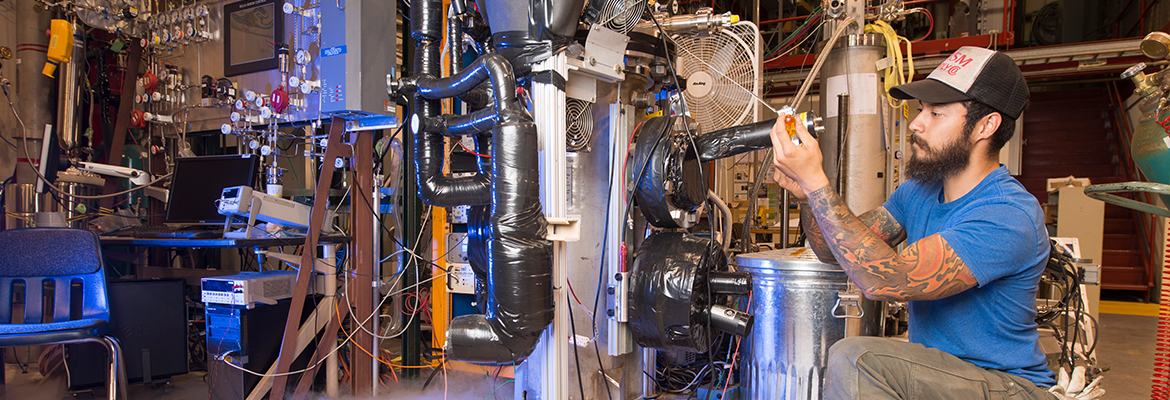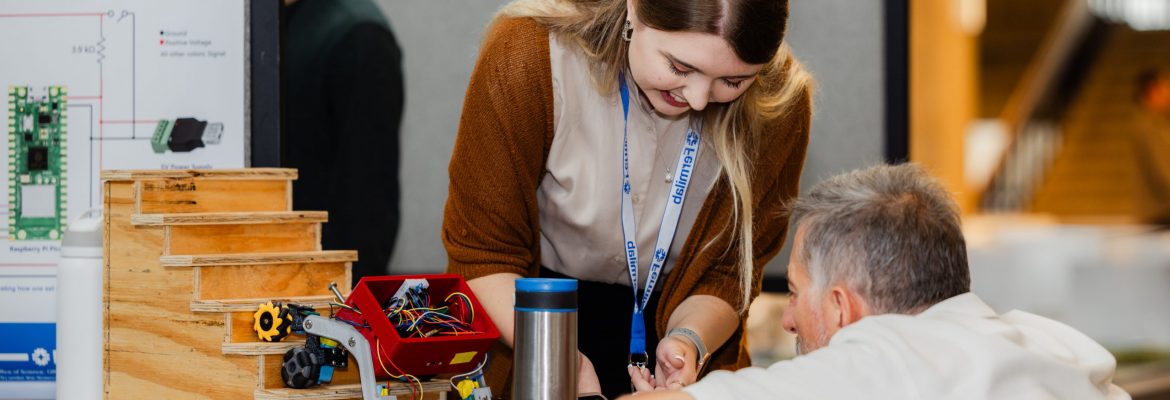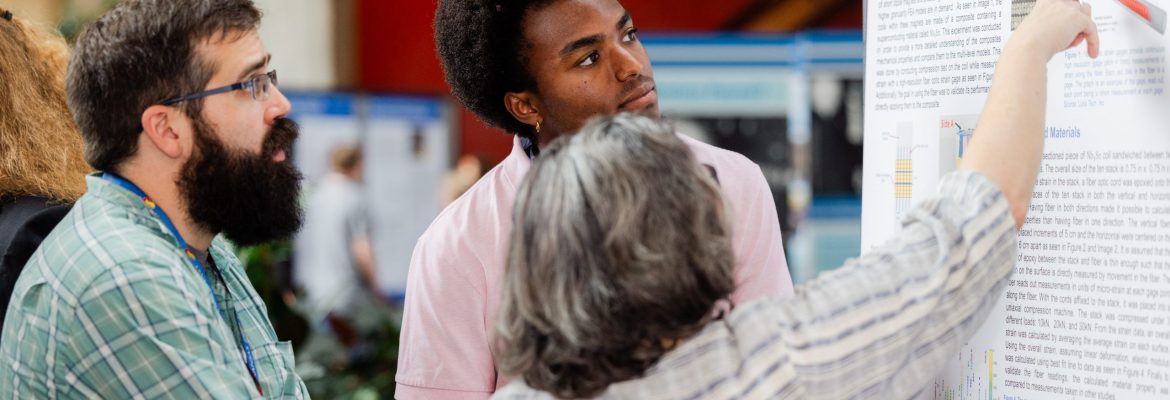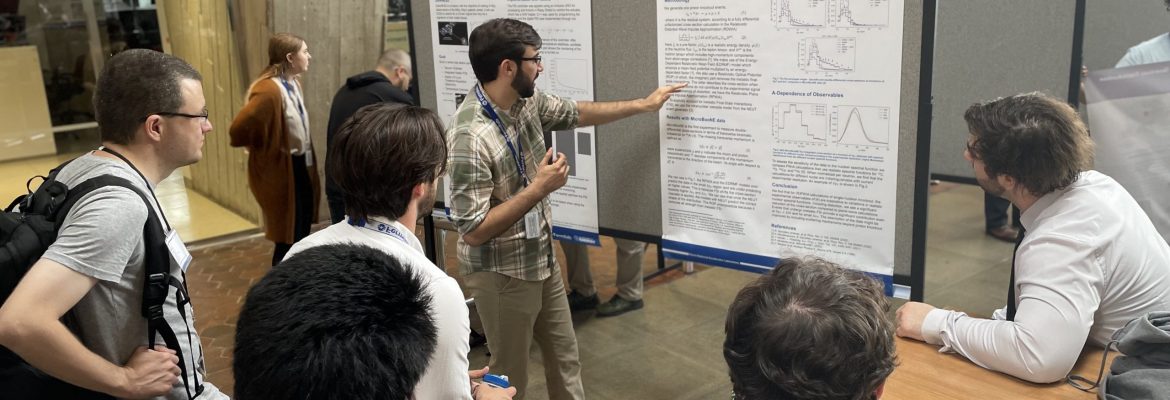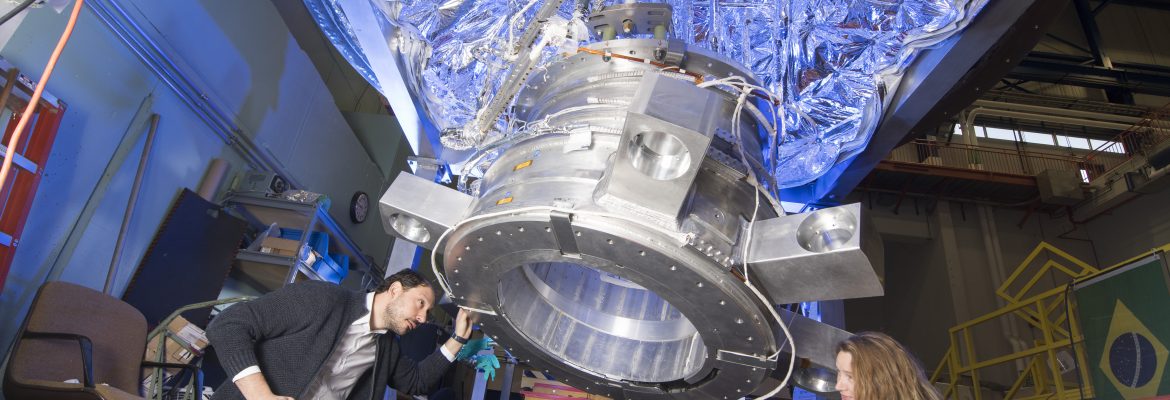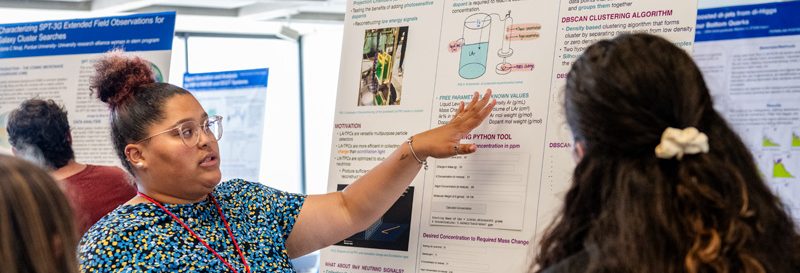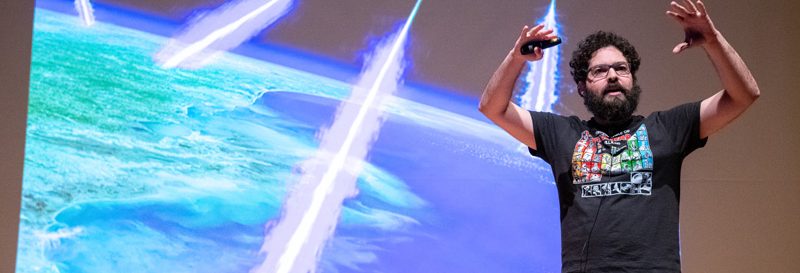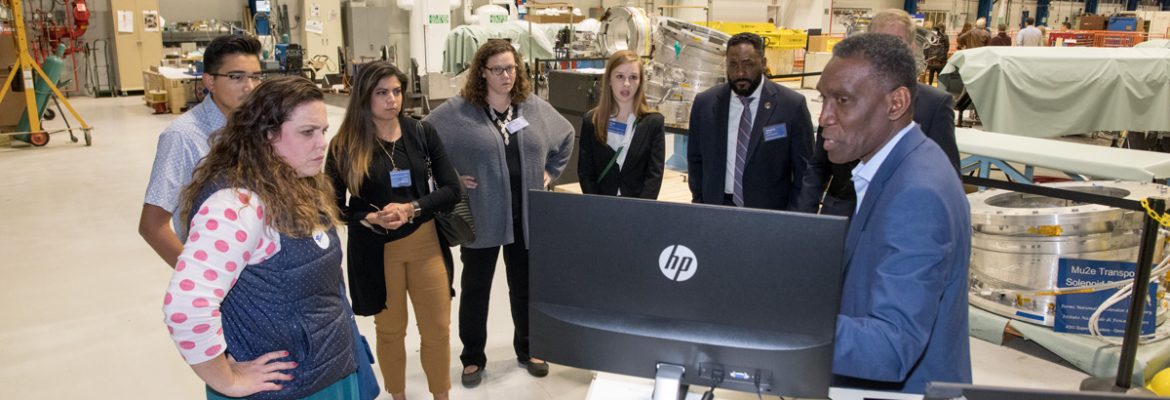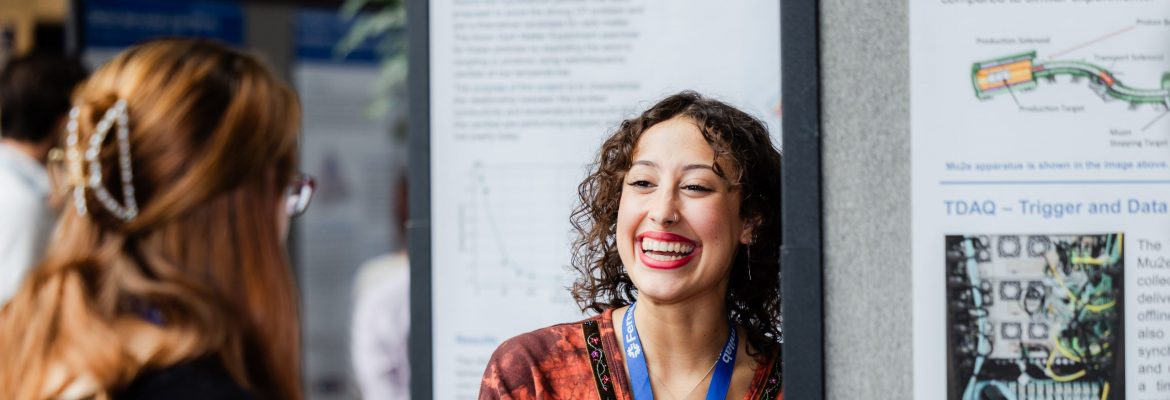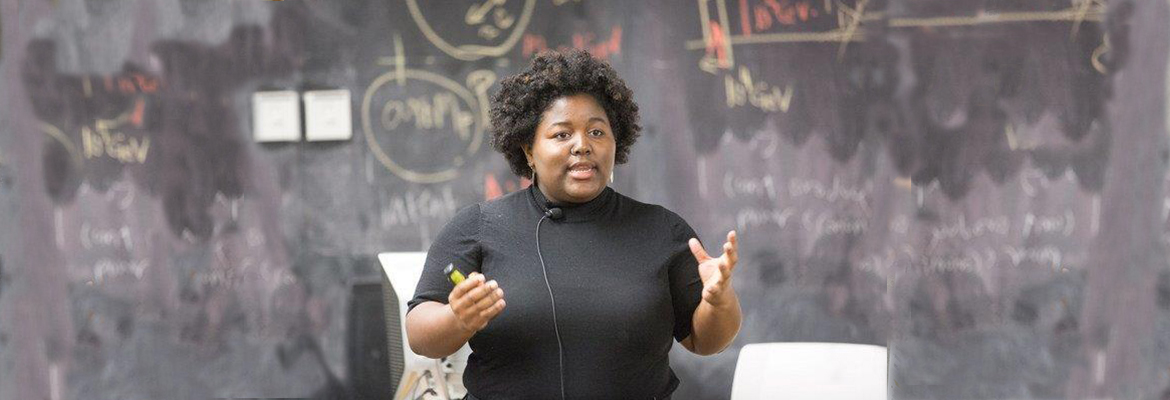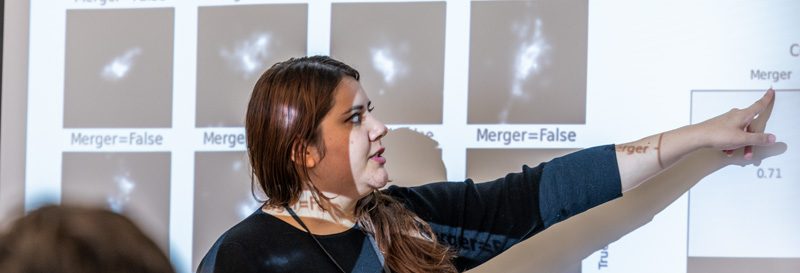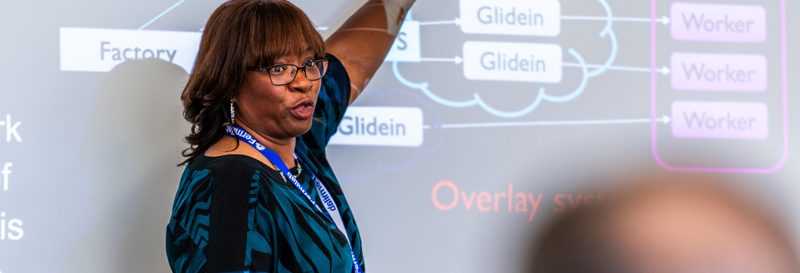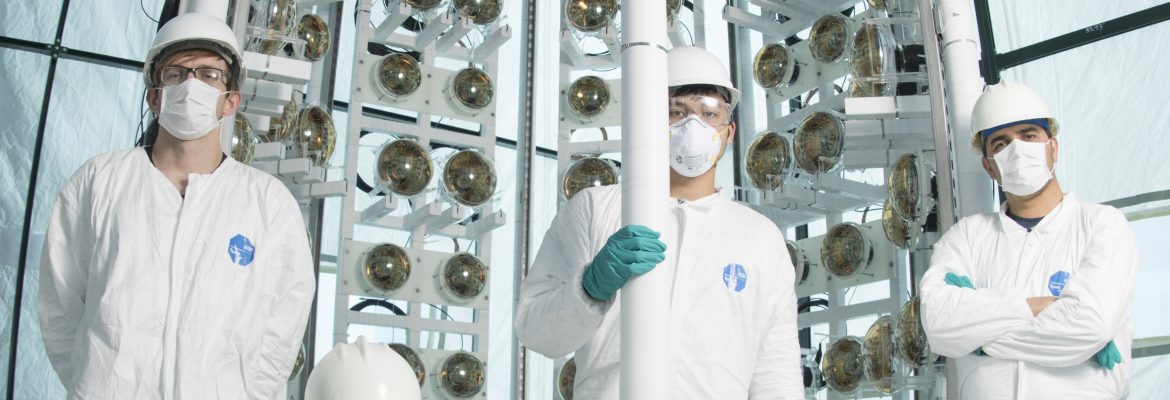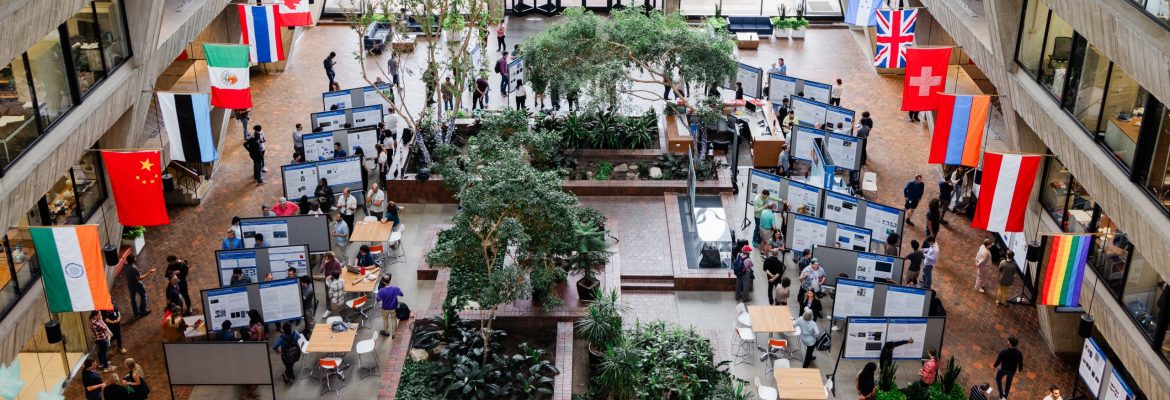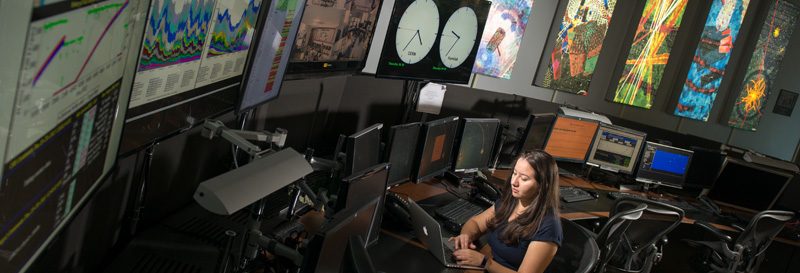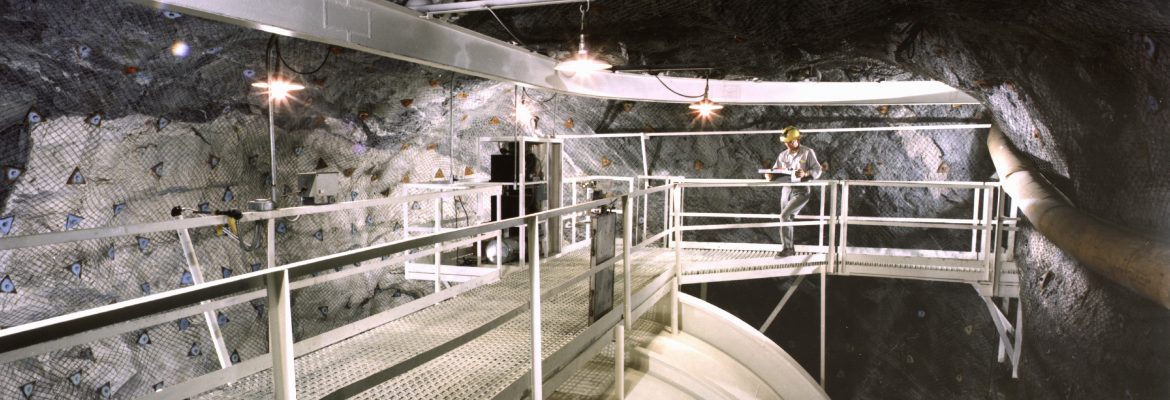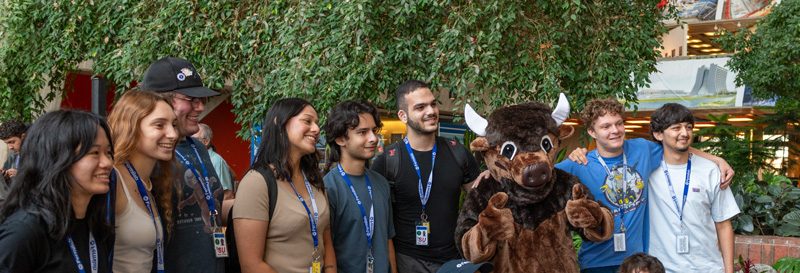TRAC Frequently Asked Questions (FAQs)
Please read the following answers to the most common inquiries from applicants.
What can the intern expect to get out of the TRAC program?
The goal of the program is to provide teachers with the opportunity to experience firsthand the scientific, engineering, and technical tasks that comprise the research activities we do at Fermilab. Our program is loosely structured in the sense that it allows self-motivated teachers the freedom to create their own goals for the summer and meet them by using the resources and experiences available to them at Fermilab. Past teachers have said they can better appreciate what is actually involved in research and how it relates to what their students learn.
You will be able to find out about programs your students can get involved in at Fermilab as well as network with other teachers, staff in our Office of Education and Public Outreach, our field trip coordinator and the scientific, engineering, and technical staff at Fermilab.
Can you give more details of what interns do as part of the program?
Teachers are assigned mentors and projects based on their skills, experiences, and interests. Typically, each teacher will work with a mentor for eight weeks. The work can involve hands-on technical work like helping to build parts of a neutrino detector, or working on a test stand to collect data, or could involve software like making web pages, data analysis, or making CAD drawings for an engineer. You can look at what TRAC teachers worked on in previous years by looking at their TRAC web pages. Eight weeks is usually too short to do a self-contained project; instead, the teacher will typically contribute to some ongoing task and experience firsthand part of all the different types of work involved in doing research at Fermilab. Due to the dynamic nature of research, the exact work for some projects may only be finalized very close to the summer.
What am I expected to fulfill regarding hours of involvement?
Accepted TRAC employees will have to work full-time (40 hours/week) Monday-Friday at Fermilab for eight weeks, excluding holidays. There can be a short (e.g. a week) break in the middle of this 8 week period for school or family commitments. Except, in extenuating circumstances, working for a period shorter than 8 weeks is not accepted. Your exact schedule each day can be flexible depending on your mentor and your work.
As well as working on your project, you will attend a weekly TRAC program meeting. The TRAC meeting is intended to inject more of an “education component” into the program. Depending on your mentor and work schedule, you will be encouraged to go to the Summer Lecture Series, the weekly colloquium, and the scheduled tours of the site’s facilities and experiments.
Near the end of your term at Fermilab, you will give a presentation on your work at Fermilab, create a brief bio and work description for your Fermilab TRAC web page, and fill out a feedback survey. If you opt for graduate credit, there are other assignments you need to fulfill.
How flexible are the program dates for the eight weeks that I should be at Fermilab?
The start date for each teacher is reasonably flexible to account for different school schedules. Typically, teachers start their eight-week appointment in May or June. Depending on the teacher’s project and mentor, it may be possible to skip a week and make it up later (e.g., to meet a school or family commitment), but that must be approved prior to your start date. In order to make the experience as worthwhile as possible for both you and your mentor, we expect you to work at Fermilab for a total of eight weeks. If you have further questions, please send them to TRAC@fnal.gov.
Besides learning about particle physics and research through my project, my goals for the summer also include improving my classroom curriculum. Will I have time to work on some educational materials?
You will typically be kept busy with your project during the summer, but your mentor will expect that you will attend the weekly TRAC meetings, the summer lecture series, and the scheduled Fermilab tours. You will usually have time, particularly at the beginning of your project to research the experiment or project you will be a part of, and find out about the science. In the past teachers have found that by experiencing the work and the environment, meeting scientists, hearing lectures and reading Fermilab Today, they can get a good sense of how to steer an interested child towards the subject. The TRAC program is not designed or setup to provide a structured way to directly translate your experiences to the classroom. We believe you as the teacher are the best person to do that. We provide you with a real research experience, and with other “raw resources” available at Fermilab and we hope that a motivated intern will direct their own experiences to get what they would like from the program. The weekly TRAC meeting is one way we try to inject more of a teacher component into the TRAC program; we try to provide a forum where you can learn about the educational programs and resources available at Fermilab, and to discuss with other like-minded educators how your experiences can be related back to the classroom.
Will I be accepted if I don’t teach physics? Do I have the necessary skills to make this opportunity “right” for me?
You do not have to teach physics to be accepted into the program. The program is open to 7th through 12th grade teachers who teach science (e.g., general science, physics, chemistry, biology, geophysics, etc.), math, computer science, technology, or engineering. We typically have various types of projects and can use people with various skill levels; the information you provide will help us find matching projects for you.
Do you accept teachers from outside of Illinois?
The program is open to teachers from and outside of Illinois. See the TRAC Program page for the eligibility requirements. You should be aware that we do not provide any separate funding for housing or travel.
I am interested in many of the topics in the “Other Work Experiences and Skills Placement” section, but I am not skilled at them; how can I say I’m interested in a topic but not skilled?
Accurately giving your skill level and interest will help us select a project best matched to you. Please select the skill/experience level for each topic in the section that is most appropriate for your skill level; then in the “Areas of Preference” section, you can list the topics that interest you.
I don’t know what to put down in the “Areas of Preference” section, as I don’t know what type of projects I could work on.
You do not have to list a preference; we will try to find a project that matches your skills. We have a very broad range of possible projects with opportunities for a diverse set of skills.
Who can I contact regarding questions on the online application, or for other general questions about TRAC?
You can email your questions to TRAC@fnal.gov, and we will try to respond as quickly as we can or forward your email to the relevant people. Please read through the FAQs in case your question is already answered.
When do you ask for the letters of recommendation from the two people I put down as my references?
We request letters of recommendation from your references after you submit your application. We expect to receive your letters of recommendation by the deadline.
Can you provide a date when you will inform applicants of acceptance to the program?
We realize some teachers want to finalize their summer plans early. Our goal is to inform all applicants of their application status within three weeks after the application deadline; it may take longer.
I don’t have medical insurance. What do I do?
You must have medical insurance to participate in any of the internship programs at Fermilab. The Fermilab Users Office has more information on obtaining short-term medical insurance.
Can I earn graduate credit by participating in TRAC?
Fermilab TRAC participants may register for optional graduate credit course hours through the University of St. Francis (Joliet, Illinois) at https://www.stfrancis.edu/real/experiential/. It is possible for Illinois educators to receive professional development hours (PDHs) in lieu of graduate credit hours.
Will I be able to use my own laptop while at Fermilab? Do I need to bring a laptop with me to Fermilab? What else should I bring?
We will provide the necessary tools and computers you need to do work on your project. You can bring your own laptop onsite. Depending on your specific work and your mentor, you may be able to use your own laptop for your work, but you may not have the right software to make this possible. You may also want to use your own laptop if you plan to work on your own educational materials.
I am from out-of-state, so I will be packing for eight weeks. What is the dress code at Fermilab?
Dress at Fermilab is informal/casual. For some work environments open-toe shoes are not allowed. You are encouraged to ask your mentor if there are any requirements for the area where you will be working.
I am coming in from Chicago, is there a way I can use public transport to get to Fermilab?
Pace’s Call-n-Ride bus service has expanded to Fermilab and Geneva’s Metra station on the Union Pacific West line.
Fermilab has a taxi/shuttle service that you can use during work hours to get around the Fermilab site.
Do you have suggestions and pricing for local lodging options near Fermilab?
You can check the Visit Fermilab and Lodging Near Fermilab pages for more information.

